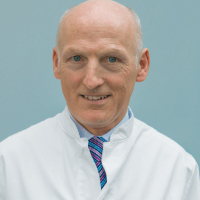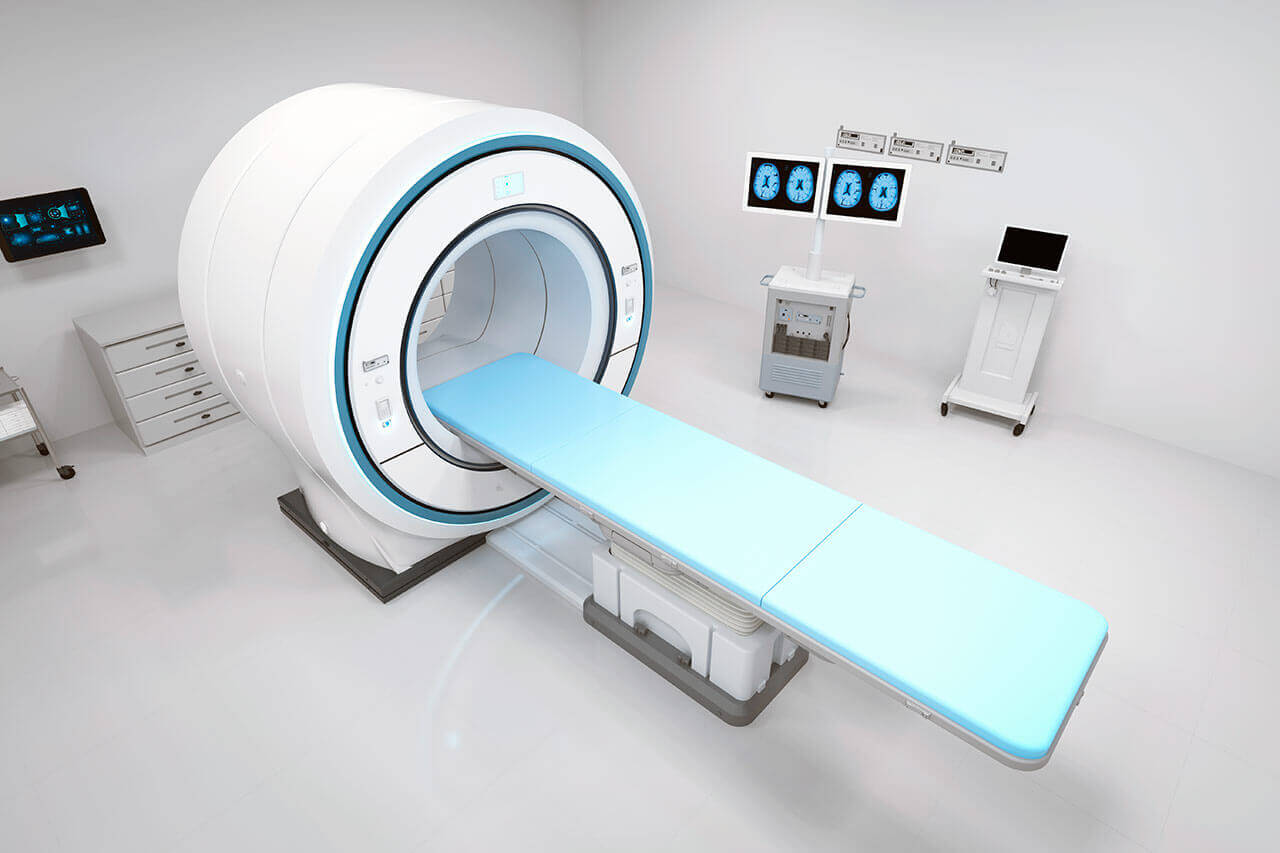
About the Department of Orthopedic Surgery and Sports Traumatology at International Neuroscience Institute Hannover
The Department of Orthopedic Surgery and Sports Traumatology at the International Neuroscience Institute Hannover offers a wide range of diagnostic and therapeutic services for patients with musculoskeletal diseases and injuries. The focus of the department's medical team is on patients with diseases of the knee, hip, shoulder, elbow and ankle joints. The department's experienced surgeons most often perform arthroscopic interventions, as well as partial and total joint replacement surgery. Revision interventions to replace previously implanted prostheses are also within the competence of the department's orthopedists. The department's experts devote enough time to counseling patients, explaining the features of upcoming treatment and expected therapy results. When performing surgical treatment, the doctors widely use sparing minimally invasive and arthroscopic techniques, and therefore postoperative recovery takes place in the shortest possible time. Moreover, the patient experiences only mild pain. To consolidate the results of the main course of treatment, the patients undergo an individually selected course of physiotherapy. The Chief Physician of the department is Prof. Dr. med. Ulrich Bosch.
The primary focus of the department's work is replacement of large joints, which in many cases is the only effective treatment option for patients with degenerative joint diseases or traumatic injuries. The orthopedic surgeons of the medical facility specialize in both partial and total joint replacement surgery. It goes without saying that the specialists always strive to preserve the patient's own joint as much as possible and, if possible, perform its partial replacement. It should be noted that the department uses in its clinical practice only high-quality endoprostheses from well-known world manufacturers distinguished by a long service life. The endoprosthesis is selected for each patient individually, completely repeats the shape and structure of a normal human joint, and also performs all its functions. In addition, when choosing the optimal type of endoprosthesis, the age, anatomical and physiological characteristics of the patient are taken into account. The department is a progressive medical center, and therefore actively implements the very latest surgical techniques. Thus, joint replacement surgery is performed in the department using minimally invasive techniques. The operations are most often performed under local anesthesia, which helps to exclude the negative effect of general anesthesia on the body. When performing the surgical procedure, the surgeons use computer navigation systems, under the guidance of which they can reliably fix the endoprosthesis in the correct position in relation to adjacent anatomical structures. As a rule, the duration of the operation is about an hour. During the intervention, the surgeon makes one or several small incisions in the joint, through which he performs all manipulations to replace the affected joint with an endoprosthesis using a miniature camera and special surgical instruments. After the operation, the wound is sutured and a sterile bandage is applied. After surgery, the doctors conduct follow-up examinations to assess the outcome of intervention and physiotherapeutic procedures to restore the patient's mobility.
The team of the department's doctors is also proud of its successful results in the field of arthroscopic interventions, which represent the least traumatic surgical techniques available in modern orthopedics and traumatology. Arthroscopy can be performed for both diagnostic and therapeutic purposes. The procedure of arthroscopic surgery is as follows: the surgeon makes a small skin incision a few millimeters in size, through which he inserts the optical system (arthroscope) and surgical instruments into the joint. The optical system allows the doctor to clearly see the anatomical structures of the joint, eliminating unnecessary manipulations and damage to the healthy tissues. The patient can leave the hospital 1-3 days after the arthroscopic procedure, which is one of the main advantages of the technique over classic open surgery. In addition, such operations guarantee minimal blood loss and almost do not leave any scars. The department's surgeons perform arthroscopic interventions for injuries to the menisci, ligaments, synovium, cartilage, as well as rotator cuff tear, the presence of intra-articular loose bodies, impingement syndromes, etc.
The department's key clinical focuses include:
- Treatment of knee diseases and injuries
- Treatment of hip diseases and injuries
- Treatment of shoulder diseases and injuries
- Treatment of elbow diseases and injuries
- Treatment of ankle diseases and injuries
- Treatment of other musculoskeletal diseases and injuries
The department's surgical options include:
- Arthroscopic surgery
- Minimally invasive surgery
- Large joint replacement surgery
- Revision joint replacement surgery
- Other services
Curriculum vitae
Prof. Dr. med. Ulrich Bosch is the Chief Physician of the Department of Orthopedic Surgery and Sports Traumatology at the International Neuroscience Institute Hannover. The specialist received his Doctoral Degree in Medicine from the University of Tübingen in 1984. A habilitation procedure followed in 1993 at the Hanover Medical School. In 1997, Dr. Ulrich Bosch was appointed as Extraordinary Professor at the Hanover Medical School. The specialist also worked in the Department of Trauma Surgery at the Hannover Medical School. In 2002, the doctor became the Head of the Department of Orthopedic Surgery and Sports Traumatology at the International Neuroscience Institute Hannover. The priority areas of the specialist's research activities include the treatment of knee and shoulder diseases.
Awards and Honors
- 1991 Albert Trillat Young Investigator's Award.
- 1998 Jenö Manninger Medal of the Central Institute of Traumatology, Budapest, in recognition of his special merits in the joint research work.
- 1998 Research Excellence Award of the American Orthopaedic Society for Sports Medicine.
- 2003 DonJoy Award of the Working Group on Arthroscopy for the research on alpha smooth muscle actin in fibroblastic cells in the knee of a person suffering from arthrofibrosis.
- 2006 First Bundeswehr Medical Command Award for the surgical treatment of soldiers wounded in Afghanistan.
Photo of the doctor: (c) International Neuroscience Institute®




